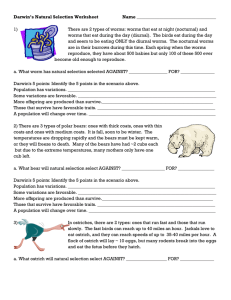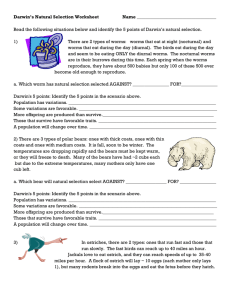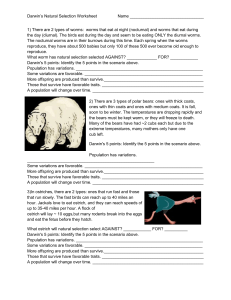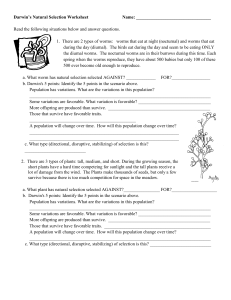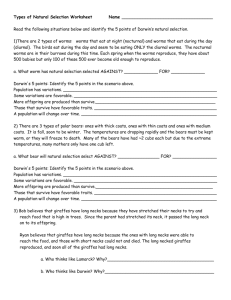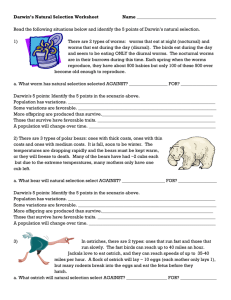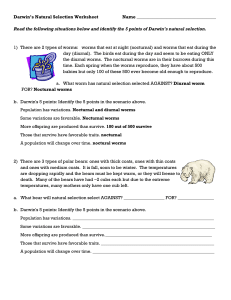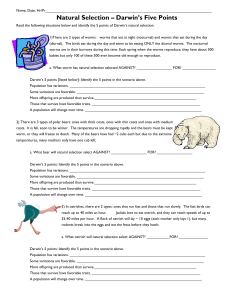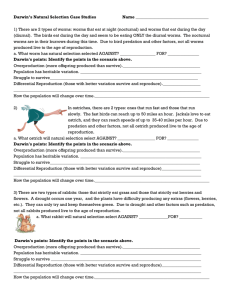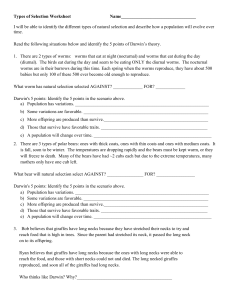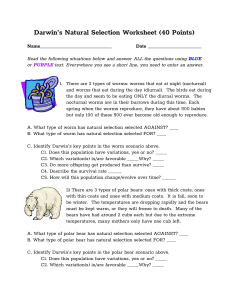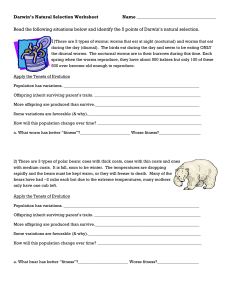Darwin's Natural Selection Worksheet DIRECTIONS: Read the
advertisement
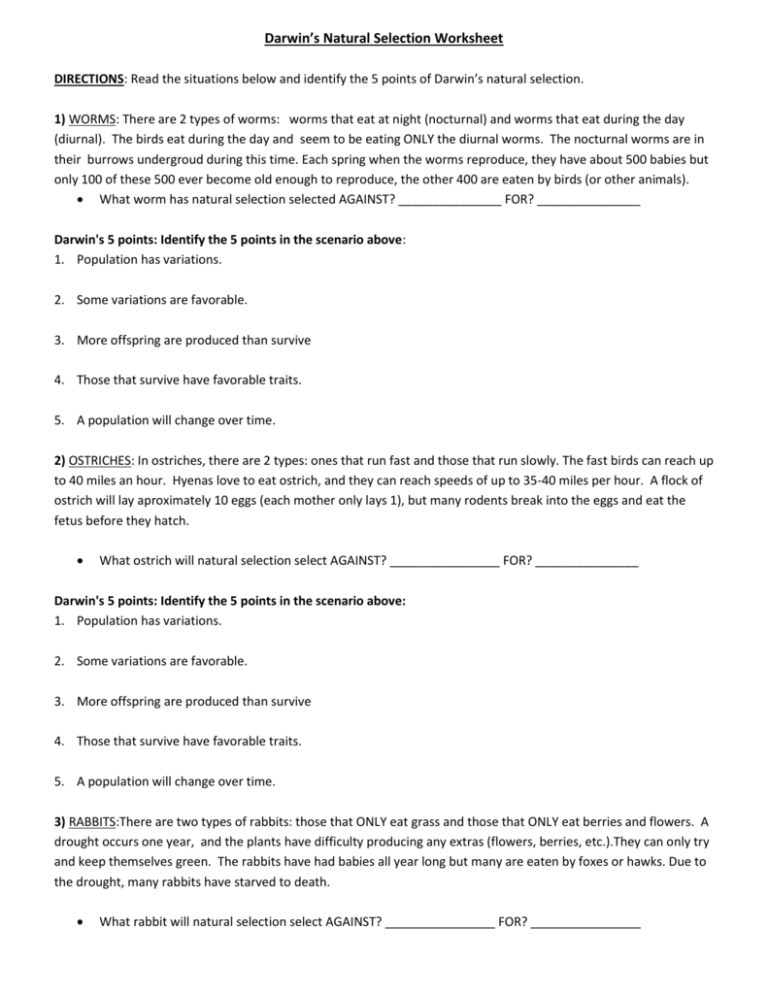
Darwin’s Natural Selection Worksheet DIRECTIONS: Read the situations below and identify the 5 points of Darwin’s natural selection. 1) WORMS: There are 2 types of worms: worms that eat at night (nocturnal) and worms that eat during the day (diurnal). The birds eat during the day and seem to be eating ONLY the diurnal worms. The nocturnal worms are in their burrows undergroud during this time. Each spring when the worms reproduce, they have about 500 babies but only 100 of these 500 ever become old enough to reproduce, the other 400 are eaten by birds (or other animals). What worm has natural selection selected AGAINST? _______________ FOR? _______________ Darwin's 5 points: Identify the 5 points in the scenario above: 1. Population has variations. 2. Some variations are favorable. 3. More offspring are produced than survive 4. Those that survive have favorable traits. 5. A population will change over time. 2) OSTRICHES: In ostriches, there are 2 types: ones that run fast and those that run slowly. The fast birds can reach up to 40 miles an hour. Hyenas love to eat ostrich, and they can reach speeds of up to 35-40 miles per hour. A flock of ostrich will lay aproximately 10 eggs (each mother only lays 1), but many rodents break into the eggs and eat the fetus before they hatch. What ostrich will natural selection select AGAINST? ________________ FOR? _______________ Darwin's 5 points: Identify the 5 points in the scenario above: 1. Population has variations. 2. Some variations are favorable. 3. More offspring are produced than survive 4. Those that survive have favorable traits. 5. A population will change over time. 3) RABBITS:There are two types of rabbits: those that ONLY eat grass and those that ONLY eat berries and flowers. A drought occurs one year, and the plants have difficulty producing any extras (flowers, berries, etc.).They can only try and keep themselves green. The rabbits have had babies all year long but many are eaten by foxes or hawks. Due to the drought, many rabbits have starved to death. What rabbit will natural selection select AGAINST? ________________ FOR? ________________ Darwin's 5 points: Identify the 5 points in the scenario above: 1. Population has variations. 2. Some variations are favorable. 3. More offspring are produced than survive 4. Those that survive have favorable traits. 5. A population will change over time. 4) GIRAFFES: Bob believes that giraffes have long necks because they have stretched their necks to try and reach food that is high in trees. Since the parent had stretched its neck, it passed the long neck on to its offspring. Ryan believes that giraffes havelong necks because the ones with long necks were able to reach the food, and those with short necks could not and died. The long necked giraffes reproduced, and soon all of the giraffes had long necks. a. Who thinks like Lamarck (aquired traits)? ____________________ b. Who thinks like Darwin (naturally selected traits)? _______________ 5) Choose an animal species. Your goal is to describe the way in which an evolutionary change might occur for a particular characteristic (trait) of that species as a result of natural selection. The characteristic could be something like coloration pattern, length of the limbs, or size of the teeth or beak, or any measurable trait that is inherited. The organism you choose should be a real one but the evolutionary change you describe can be real or theoretical. Explain how the change occurs in terms of the four postulates. You will describe what the population starts out like at time zero and then what it will look like at a later time, as a result of natural selection. Make sure to explain the process by which the changes occurred. What is the selective pressure? Explain why the change might confer more fitness to a particular environment? Remember: evolution occurs at the level of the population. Individuals do not evolve, populations evolve.
